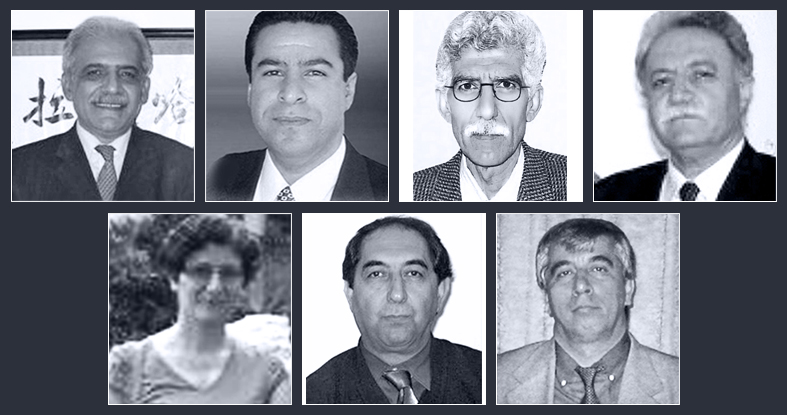
Academics from universities throughout Australia are calling on Iran to make higher education accessible to students from all religious backgrounds, including members of the Baha’i Faith.
Their call is being made as news comes to hand that seven Baha’i educators in Iran have been sentenced to four and five years in jail after teaching academic subjects to young Baha’is banned from attending university because of their religion.
In an open letter to the Ambassador of Iran to Australia, Dr Mahmoud Babaei, the Australian academics said they joined with their counterparts from other countries in calling on Iran to remove discriminatory elements from its education system.
The letter is signed by 73 academics, including senior professors, from institutions ranging from the University of Sydney and Monash University on the eastern seaboard to the University of Western Australia and Edith Cowan University in the west.
Among the signatories is the vice-chancellor of the University of Ballarat, Professor David Battersby. The organiser is Professor Fazel Naghdy, head of the school of electrical, computer and telecommunications engineering at the University of Wollongong.
The letter condemns attacks by the Iranian authorities on an informal educational initiative of the Baha’i community – known as the Baha’i Institute for Higher Education (BIHE) – in which Baha’i professors, barred by the Iranian government from teaching at universities, voluntarily offer their services to teach young community members who are banned from higher education because of their religion.
Some of the Australian signatories to the open letter, including Professor Naghdy, have provided academic instruction online to the students, several of whom are now pursuing postgraduate studies in Australia.
Accounting lecturer Farhad Sedghi, a brother of prominent Dubbo businessman Nasser Sedghi, is one of seven Baha’is associated with BIHE who has been sentenced to four years in jail.
The seven were among 16 detained after a series of raids on 22 May, in which 39 homes associated with BIHE were targeted. The Institute’s activities have since been declared illegal by Iranian authorities.
Australian Vice-Chancellors
The Australian academics noted that Universities Australia, representing the Vice-Chancellors of all Australian universities (formerly the Australian Vice-Chancellors Committee) had raised the issue of the ban with UNESCO in 2006, 2007 and in June this year. British academics also spoke up in an open letter published in the Guardian newspaper.
The Australian university staff reminded Iran it had signed international covenants guaranteeing freedom of thought, conscience and religion as well as the right to education.
“We call for the arrested individuals to be treated in accordance with the right to which they are entitled under international law and be released immediately.”
On 10 October, in an open letter published in the Daily Telegraph in the United Kingdom, 43 distinguished philosophers and theologians from 16 countries, included two from Australia, condemned Iran’s policy to bar young Baha’is and others from higher education. The signatories were from Christian, Hindu, Jewish, and Muslim backgrounds.
Nobel laureates call for release
Late last month Nobel laureates Desmond Tutu, the Anglican Archbishop Emeritus of Cape Town, and Jose Ramos-Horta, President of East Timor, called upon the Iranian government to release unconditionally and drop charges against the seven Baha’is on trial for their educational activities.
Denial of education made despots appear fearful of the very age they live in, the Nobel Laureates said.
“Perhaps the most glaring example of this fear today is the denial of higher education to the members of the Baha’i Faith in Iran – a peaceful religion with no political agenda, which recognizes the unity of all religions.”
Read the story from Baha’i World News Service
